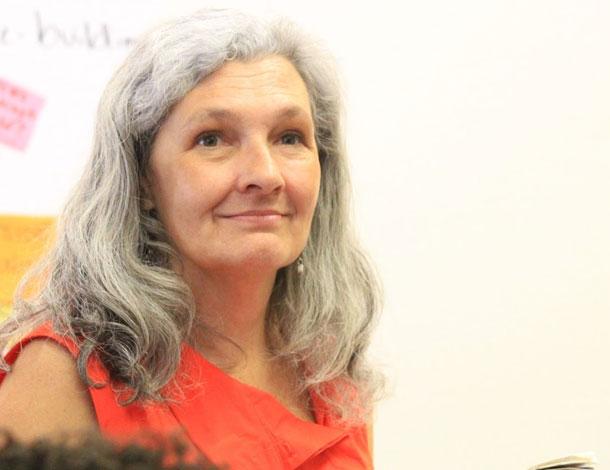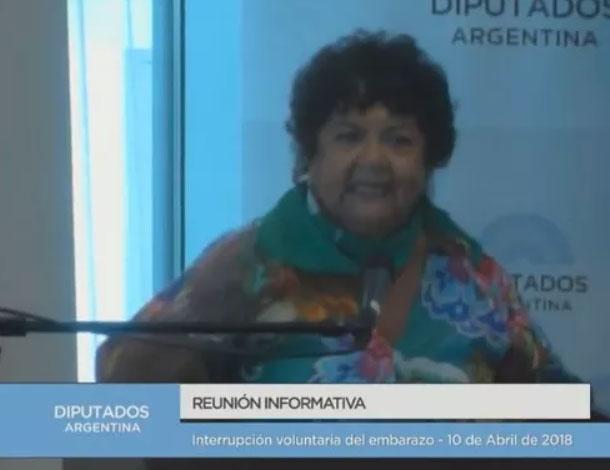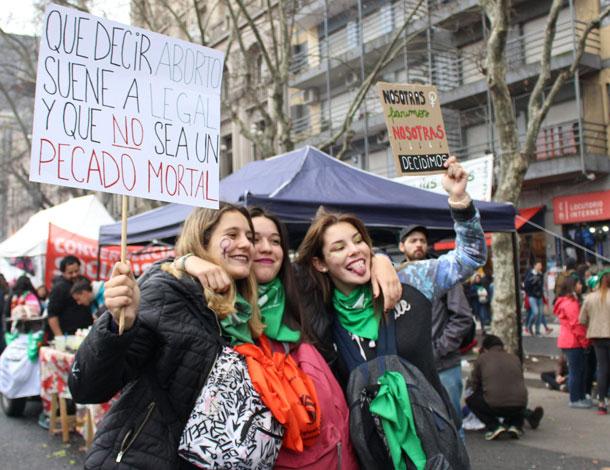When it comes to feminist revolutions, “freedom from” is nothing without “freedom to”

My name is Alejandra Sarda-Chandiramani. I am a long-time sexual rights activist. I am from Argentina, where at present there is a very strong and massive feminist movement thanks to which Parliament has finally started discussing de-criminalizing and hopefully also legalizing abortion. I wear a green handkerchief, a symbol of that struggle.
Also, I am married to another woman under the laws of my country, where we both live. But she is Indian so in her country our relationship is against the law. So, I’m legal and ‘not-legal’ at the same time!
I have to confess that I cringe when I hear terms like “unpolicing”, in the context of sexual rights.
It is my belief, based on experience, that unpolicing is never enough. It is only the first step. The claim for unpolicing certain sexual practices, gender identities, etc. can not be dissociated from a claim for the material conditions that will allow those practices and identities to be fully realized. This is why, for me, ‘unpolicing’ sexuality and gender can only lead to social transformation if it happens as part of a broader political agenda that includes the redistribution of wealth and genuine participatory democracy – my kind of feminist agenda!
Because in my context, nobody demands ‘unpolicing’ – what people demand are ‘public policies’. Public policies that start with getting the police and the criminal justice system off our beds, identities, etc. but immediately move education, health and labour “in”, with policies that are shaped with strong participation of the relevant community. Because criminalization results in exclusion – economic and social – but also results from exclusion.
One of the leading feminists in Argentina, historian Dora Barranco, recently said during a Parliament hearing on the abortion bill that “Privileged women have always undergone abortions in good sanitary conditions. But for women of the impoverished classes, this criminalization has been an ominous, covert sort of death sentence” (Dora Barrancos, intervention at the Parliamentary Hearing on the Abortion Law, April 10, 2018.)

I can not conceive of unpolicing without social policies, universal rights without economic justice.
But others can. For (neo) liberal politicians, agreeing to ‘unpolice’ sexuality and gender is not too much of a problem. In my country, many of them supported that trans people could change their identity papers based on self-determination, now support that women can decide to have an abortion and tomorrow will probably support that sex workers pay taxes. ‘Unpolicing’ is cheap, makes you look progressive, very 21st Century. But, in the end, they voted against the gender identity bill (as they will probably do with the abortion bill). Why? Because in my part of the world, years of ‘populisms’ and ‘revolutions’ have taught us that “freedom from” is nothing without “freedom to”. And so our Gender Identity Law included the State obligation to provide information and services for surgery, hormonal and cosmetic treatment. No (neo)liberal politician could vote that. Neither can they vote for the free abortion services and the State production of Misoprostol, a medication that induces abortion, that some of the versions of the abortion Bills under discussion are demanding.
Let me use Argentina’s Gender Identity Law of 2012 as an example.
This law passed in a social context marked by what we used to call ‘broadening of rights’. It included a corresponding broadening of State obligations to ensure the realization of those rights. For trans people, it meant that the ordinances criminalizing their identities were repealed and they ceased to be arrested for being who they were. But it did not stop there. It was accompanied by employment programs, loans and training in social economy for trans cooperatives, incentives to study, among others. Without all that, the law would have benefitted mainly those few trans people who already had class (very linked to ethnic) privileges and would have even reinforced those privileges.
But, any process of social change – and particularly those dealing with social institutions as old and fundamental as gender – requires time. And time is what we don’t have in the periphery of the world, in the neo-colonies, because in order to be allowed to last our governments are not expected to increase social spending to broaden the realization of people’s rights but rather the opposite: cut, acquire debt, pay interest, buy weapons, you know the story. Since 2016 we have a neo-colonial administration that follows this script to the letter. All those programs I just mentioned are being dismantled.
The Gender Identity Law was not repealed. But many trans people without class/ethnic privilege have gone back to subsistence activities that are criminalized and in which there is a clear gender-bias, as women and trans people involved in them tend to be far more vulnerable to policing (and police brutality) than their peers who are cis men: street sex work and petty drug dealing. And most of the hospitals that were supporting their gender affirmation processes are unable to do so now because they don’t have hormones, or doctors or both.

This is why I have learned that unpolicing is not enough.
It is only the beginning of the conversation. My late friend and travesti leader Lohana Berkins said in her parting message “We will never go back to jail”.
Unpolicing is the key to open some jails; for others, you need a revolution – ideally, a feminist revolution.
This essay is also available in audio format:
